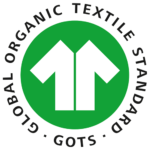What Is GMP?
Good Manufacturing Practices

Good Manufacturing Practices (GMP) is a system that ensures products are consistently produced and controlled according to quality and safety standards for their intended use, complying with regulatory requirements. GMP guidelines cover all aspects of production, from raw materials to training, facility, equipment, and personal hygiene. Written procedures and documentation are essential to ensure correct procedures are followed consistently.
GMP is a voluntary standard
GMP is a voluntary standard that exceeds customer and stakeholder expectations for product quality and food safety practices. Certification bodies conduct GMP audits based on their own guidelines or checklists, and may also refer to regulatory guidelines such as:
– PSQCA (Pakistan Standards and Quality Control Authority)
– Australian GMP guidelines
– Canadian GMP guidelines
– European GMP guidelines
– US FDA GMP guidelines
Implementing GMP minimizes risks in production, ensuring quality and safety in various industries, including food, pharmaceutical, and textile manufacturing.
The benefits of GMP
(Good Manufacturing Practices) certification
- Increased customer confidence
- Control and elimination of risks affecting the final product
- Ensuring a sustainable quality system to reduce errors
- Ensuring safe product use for humans
- Fulfilling regulatory requirements
- Preventing mislabeling and adulteration
- Enhancing brand image
- Attracting new customers
- Retaining the confidence of existing customers
The GMP certification process
1. Gap analysis and report discussion
2. Documentation and implementation
3. Employee awareness and training
4. Statutory and regulatory compliance
5. Audit preparation and certification
6. Renewal of certification before expiry (annual surveillance audits)
The cost of GMP certification
The cost of GMP certification varies depending on the organization’s size, complexity, and industry, so please contact us for a customized quote.
Note: GMP certification is not a one-time process, it requires annual surveillance audits to ensure continued compliance and certification renewal after three years.











